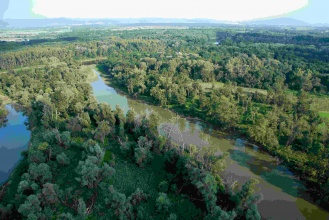Case study:Morava restoration project
Jump to navigation
Jump to search
This case study is pending approval by a RiverWiki administrator.
Location: 48° 20' 32.39" N, 16° 52' 12.70" E
Left click to look around in the map, and use the wheel of your mouse to zoom in and out.
Project overview
| Status | Complete |
|---|---|
| Project web site | |
| Themes | Economic aspects, Habitat and biodiversity, Social benefits, Water quality |
| Country | Austria, Slovakia |
| Main contact forename | Michael |
| Main contact surname | Stelzhammer |
| Main contact user ID | |
| Contact organisation | WWF Austria |
| Contact organisation web site | |
| Partner organisations | |
| Parent multi-site project | |
| This is a parent project encompassing the following projects |
No |
Project summary
Edit project overview to modify the project summary.
The Morava River is the largest left-side tributary to the Upper Danube. There have been a number of restoration projects and implementation measures which aim to restore natural river dynamics and promote appropriate land-use practices within a sensitive floodplain environment.
Monitoring surveys and results
This case study hasn’t got any Monitoring survey and results, you can add some by editing the project overview.
Lessons learnt
This case study hasn’t got any lessons learnt, you can add some by editing the project overview.
Image gallery
|
Catchment and subcatchmentSelect a catchment/subcatchment
Catchment
Subcatchment
Site
Project background
Cost for project phases
Reasons for river restoration
Measures
MonitoringHydromorphological quality elements
Biological quality elements
Physico-chemical quality elements
Any other monitoring, e.g. social, economic
Monitoring documents
Additional documents and videos
Additional links and references
Supplementary InformationEdit Supplementary Information
| |||||||||||||||||||||||||||||||||||||||||||||||||||||||||||||||||||||||||||||||||||||||||||||||||||||||||||||||||||||||||||||||||||||||||||||||||||||||||||||||||||||||||||||||||||||||||||||||||||||||||||||||||||||||||

